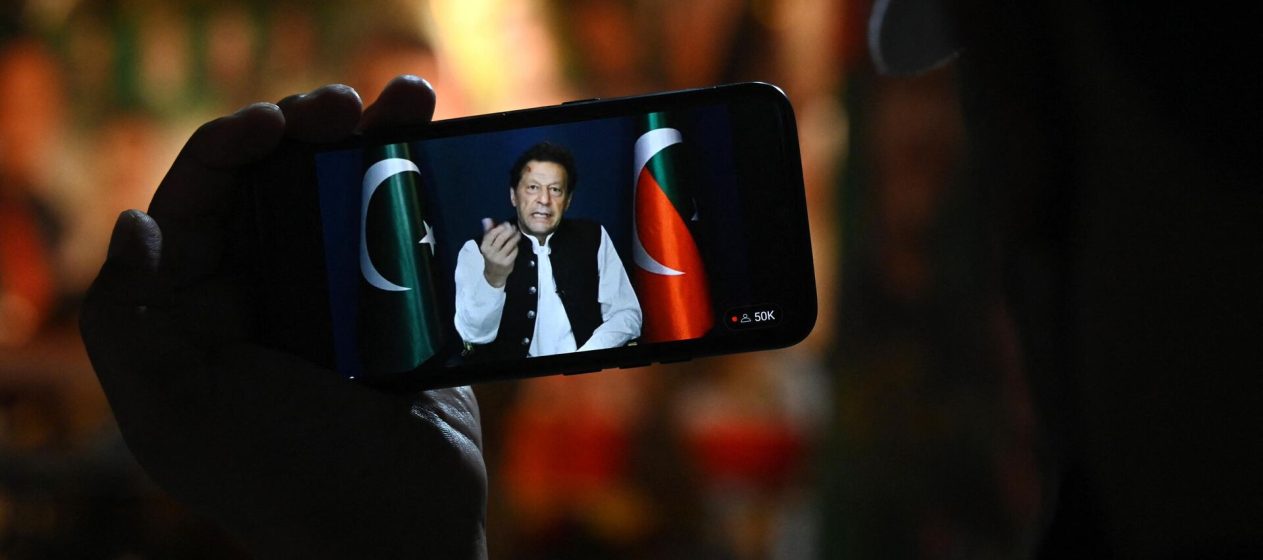Around 400 years ago, Galileo Galilei of Pisa challenged the authority of the Catholic Church through his remarkable new invention: the telescope. Back then, the Church strongly influenced what people believed: that the earth was at the centre of the universe, with all other celestial bodies revolving around it, a phenomenon known as geocentrism. However, using the telescope for his observations, Galileo opposed this assertion, placing the sun rather than the earth at the universe’s centre. Naturally, this heliocentric model challenged the Church’s authority. The telescope marked a significant milestone in disproving the Church’s stance, leading to Galileo’s infamous trial in the Inquisition, where he was charged of heresy. But the damage had already been done. Seeds of doubt had been sown, a crack which would ultimately break the Church’s monopoly over conventional narratives. Galileo’s theory marked not just a technological revolution, but also a political one. Today, four centuries later, we are seeing similar revolutionary dynamics at play through the rise of social media.
Social media has provided new impetus to the war of narratives across the world, taking it outside the control of traditional media and creating an explosion of different voices. The digital revolution, characterized by increased usage of digital technology – the most important being social media – has played a key role in major geopolitical events like the Arab Spring and the 2016 Turkish coup attempt, demonstrating its ability to engage, educate, and stir the public to action. Pakistan is following a similar pattern. The country is witnessing a paradigm shift in public opinion. Mass digitalisation has resulted in a tremendous increase in digital networking, involving the active participation of over a quarter of the population. Individuals regularly utilise this new technology to express their opinions and access unfiltered information that would otherwise unavailable to them.
Pakistan’s political landscape has further experienced a noteworthy change in narrative generation, with the Pakistan Tehreek-e-Insaf (PTI) at the heart of this transformation. The PTI has exploited the hitherto untapped potential of new digital platforms, bypassing state-led media and forging a direct, unmediated relationship with the masses. This strategic embrace of social media has kept the PTI in the public eye since Imran Khan was ousted from power in April 2022, enabling it to pose an unparalleled challenge to status-quo forces in Pakistani politics, while continuing its campaign on digital platforms.
PTI’s effective utilization of platforms like X (formerly Twitter), WhatsApp, and TikTok to galvanize support and directly engage with voters has overturned traditional political narratives and outreach methods. The group success has relied on swiftly adapting to evolving technologies and innovating new approaches in digital networking. A prime example is their frequent utilisation of X spaces and online Jalsas following 2022’s vote of no confidence. These events have broken global records while rallying Pakistanis at home and abroad. Social media users in Pakistan routinely witness PTI supporters dominating X trends, while some of the most-watched YouTube videos in the country consistently echo Imran Khan’s message. This approach has not only amplified PTI’s political messaging but has also showcased its ability to shape public sentiment outside the digital world and garner electoral success. The February General elections evidenced this by showcasing PTI’s and Khan’s triumph. This achievement is a testament to the transformative potential of digital platforms in shaping political landscapes, effectively challenging the notion that PTI’s influence is limited to being a “social media phenomenon.” The threat of social media as a potent force has undoubtedly unnerved the established order, prompting frequent interventions by the state machinery, such as internet disruptions and website bans. Even now, accessing X in Pakistan requires a VPN. All such activities illustrate the effectiveness and impact of the “keyboard warriors.”
But the story doesn’t end here. Artificial intelligence has appeared on the horizon, promising to further unsettle the social and political status quo. Again, the PTI is not holding back from integrating this new technology into its existing setup. One example of such activity is Imran Khan’s AI voice generation, which allows his supporters to hear him even behind bars. In December, PTI officials began using AI to disseminate Khan’s message, creating speeches based on notes he passed to his lawyers from prison and converting these into an audio clone of Khan’s voice. A PTI social media team member reported, “The voice was a 60 to 65 percent match, which made people believe that Mr Khan delivered the speech.” Another member stated that AI was used “to get over suppression.” The use of this new technology for political purposes was reported by the global press, including the New York Times, the Guardian, and the Sky News.
The inability of traditional political entities like the Pakistan Muslim League Nawaz (PMLN) to adapt to the digital revolution has led to their growing irrelevance. The economist Joseph Schumpeter has termed this a process of “creative destruction.” The Industrial Revolution caused the old feudal order to lose its grasp on power and be replaced by a new bourgeoisie class, highlighting how the creation of new technology dismantles old power structures. Similarly, the digital revolution is reshaping Pakistan’s traditional power dynamics. Punjab, once a stronghold of the PMLN, has now rejected the party in favour of one that embraces technology. In this regard, PTI and PMLN are akin to the bourgeoisie and feudal order of the 19th century. One’s rise through the adoption of new technology causes the other’s demise through the abandonment of it.
Certainly, the decentralised landscape of social media has opened up a host of new challenges, from disinformation and abusive behaviour to concerns about privacy and surveillance. Simultaneously, however, it has fundamentally changed the political arena. For PTI, social media is not just a tool. It is their lifeline, empowering their strong and perhaps unprecedented resistance against the status quo. As the state seeks to remove this vital tool from PTI, the party’s ability to maintain its grip over social media platforms will become the key to its survival.







